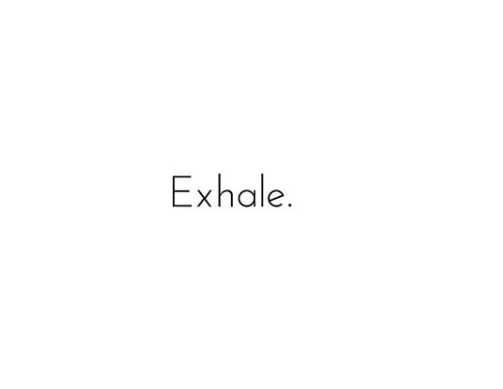Do you ever feel like there’s just too much on your plate, or not enough hours in the day? If you rush through your day, it can be bad for your health. Medical experts say that more than 75 percent of diseases and disorders are related to stress. If you can learn to turn your stress level down a notch, your body will thank you. The people around you might thank you as well.
QUIET TIME… YOUR BODY NEEDS IT
If you can learn to quiet your mind, it helps recharge your emotional, physical, and spiritual well-being. Otherwise, we are constantly reacting instead of reflecting. “This can hinder our ability to make well thought out decisions. The brain is limited in its capacity to handle multitasking, and modern day technology presents challenges the brain has never faced before,” said Dr. Fatima Ali, a psychiatrist with Linden Oaks at Edward and DuPage Mental Health Services.
MEDITATION
If stress has you anxious, tense, and worried, consider trying meditation. Meditation is a state of increased awareness of the present moment. It can create a sense of calm, peace, and balance that benefits both your emotional well-being and your overall health. If you carry yourself more calmly through your day, meditation can even improve certain medical conditions.
LIVE IN THE PRESENT
It’s good to learn from the past and plan for the future. But often we use this to avoid dealing with our present situation in life, which might be overwhelming us. If we never learn to find space in the present, Dr. Ali says we feel constantly overwhelmed, anxious, and feel a sense of being out of control. “This can lead to depression, fatigue, physical symptoms like headaches, backache, insomnia and an inability to enjoy life,” said Dr. Ali.
JUST BREATHE
Learn how to breathe properly and you can reduce mental tension, help to focus your mind, and increase your body’s energy levels by properly oxygenating the blood. Misty Soderholm, owner of SoderWorld Healing Arts Center & Spa in Willowbrook, says proper breathing calms and strengthens the mind, and creates a feeling of inner peace and self-control. If you breathe incorrectly for three minutes, that can lower the amount of oxygen to your brain and heart by 30 percent to 40 percent. This can lead to an increased risk for headaches, high blood pressure, asthma, and chronic fatigue. Soderholm says breathing life into every cell in the body, and letting go of anything that no longer serves you, is an efficient way to create a sacred space for yourself. She calls proper breathing “belly breathing”. “True, full, belly breathing is like imagining your belly like a balloon, and as you inhale, you are filling up that balloon. As you exhale, that balloon is deflating. This allows the lungs to expand to full capacity and bring more oxygen in. If you want to see proper breathing, watch a baby when they are sleeping,” said Soderholm.
TAKE BABY STEPS
At first, try scheduling several five-minute quiet moments spread throughout your day. “You will start to handle situations differently. Things won’t bother you as much as they did before, and you start to listen to your body’s signs and your inner voice,” said Soderholm.
QUIET TIME RECOMMENDATIONS
?Focus on your breath or a candle flame for five minutes
?Take a walk in nature and be aware of the beauty around you
?Take an hour bike ride that feels like five minutes
?Pray at bedtime
?Attend a church service
?Listen to music that evokes a particular emotion for you
?Take a yoga class
?Enjoy a silent meal with pure gratitude for its nourishment and flavor
My favorite oil during my times of quiet is sandalwood.


